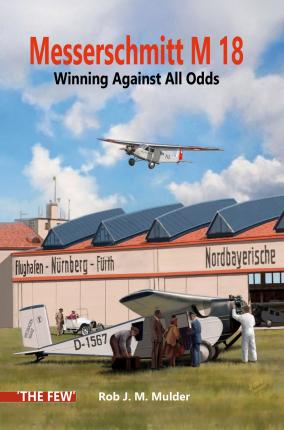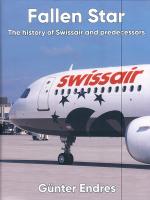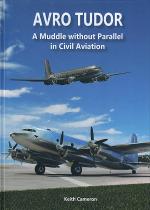The Messerschmitt (BFW) M 18 has always been of interest to me. Especially, because of the operation by the German airline Nordbayerische Verkehrsflug (NoBa), and its successor Deutsche Verkehrsflug (DEVAG). For many years, these two airlines maintained an annually growing domestic network reaching far beyond their home ground, the States of Bavaria and Saxony. The ‘low-cost airline’ flew with the economical Messerschmitt (BFW) M 18, developed by the upcoming aircraft designer Willy Messerschmitt after specifications from Theo Croneiβ. The latter was the founder of the Nord-
bayerische Verkehrsflug and remained its general manager until it was forced to close-down in 1933. In this book I will also describe the disputes between NoBa/DEVAG, Deutsche Luft Hansa, the German states Bavaria, Prussia, Saxony, and Thuringia, and the Reichsverkehrsministerium (Reich Ministry of Transport). A separate book could be written about this last subject.
The book should actually be called ‘BFW M 18’ as Willy Messerschmitt/Messerschmitt Flugzeugbau sold all the rights of his models M 17 and M 18 to the Bayerische Flugzeugwerke (BFW) in Augsburg. One of the stipulations of the contract was that the aircraft should be called ‘BFW’ + the type number. The signing of the contract between Messerschmitt Flugzeugbau and BFW was on 8 September 1927 and since then every Messerschmitt M 18 was called BFW M 18, including the M 18s that were built in Bamberg as Messerschmitt M 18. On the first M 18 one can see the words ‘Messerschmitt M 18’ on the tail, but this was forbidden after Willy Messerschmitt had signed the contract. To be consistent, I will use the designation BFW M 18 (also for the other types, like M 20 and M 24).
The aircraft also saw service outside Germany and was sold in small numbers to the Republic of China (1), Portugal (1), Romania (2) and Switzerland (2). In addition, two aircraft were built under licence in Switzerland. The foreign operated aircraft flew pleasure flights but mainly aerial survey flights. They had several cameras on board, mostly from the suppliers Wild and Zeiss-Jena. Photographs of the Swiss aircraft s/n 713 in this book offer the reader a view of the working station of the camera operator. The last aircraft was struck off charge in Switzerland in 1954, just after it had been used for crop dusting. The rich history of all aircraft will be described in this book, as always illustrated with numerous photographs and colour profiles. Hubert Cance has again made detailed cutaway drawings of the BFW M 18b (landplane) and the BFW M 18d (seaplane).
All-in-all, an interesting book with many details and numerous new photographs, color drawings, cutaway drawings, factory brochures and a production list.









